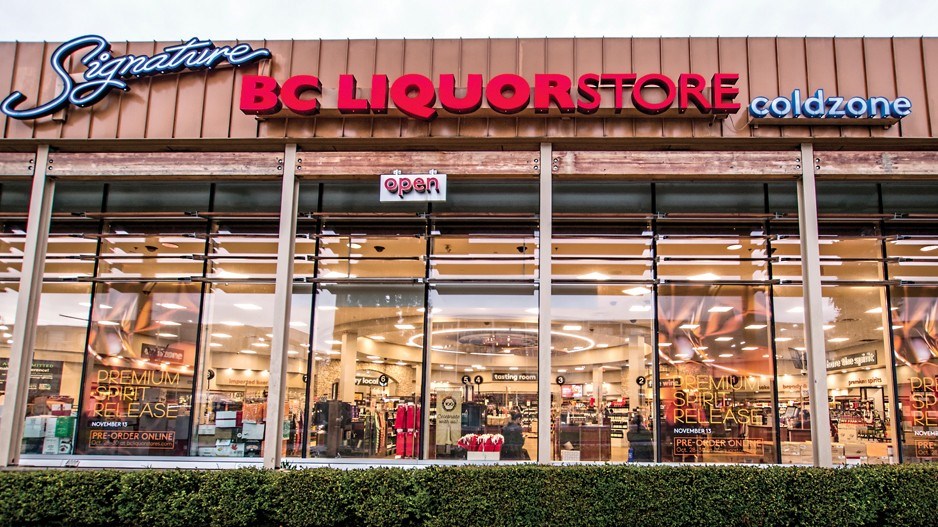While some people might assume that COVID-19 lockdowns increased the opportunity for British Columbians to consume alcoholic beverages at home, the pandemic’s impact on beer, wine and spirits sales in B.C. is far more complicated, alcohol industry officials say.
The raw numbers initially appear to support that assumption. According to the BC Liquor Distribution Branch’s (BCLDB) 2020-21 annual report issued in August, the pandemic drove “significant sales increases” in BC Liquor Store retail branches “as public health orders reduced indoor dining capacity and consumers shifted to staying home.”
The data shows the BCLDB’s net income for 2020-21 rising $53.7 million (4.9%) over the previous year to $1.16 billion - $27.4 million (2.4%) compared with what was anticipated in the budget.
Net sales during that period hit $4.13 billion – up 7.6% from 2019-20. The province said the boost was “led by higher sales in the refreshment and spirits categories” – a $152.5 million increase over 2019-20.
But those numbers don’t tell the whole story in a major part of B.C.’s liquor sales channel. The hospitality sector, which was initially decimated by COVID-related bans on in-person dining and then by the capacity and other restrictions they faced once they were allowed to reopen.
“There’s the retail sales for liquor stores, and those are – in general – up during the pandemic,” said Jeff Guignard, executive director at the Alliance of Beverage Licensees (ABLE BC). “In 2020, people tended to stock up on alcohol a lot. Our individual stores saw 30%, 50%, even 100% increases in sales. But part of why that was happening was because people were no longer going out to restaurants and bars.”
Guignard, whose organization represents workers in the retail and hospitality sub-sectors, said annual hospitality liquor sales fell from $580 million immediately before the pandemic to about $250 million in the following year – a drop of more than 50%. As such, while the overall alcohol sales numbers may be up, the more significant trend was consumers switching their hospitality sector spending to retailers.
“A lot of trends, we don’t fully understand yet,” Guignard noted. “This is all just happening right now. We just hosted the sixth annual BC Liquor Conference in October, and this was the big topic of discussion: Using the data we have to see where consumer trends are going. So we are still grappling with that.”
BCLDB data supports that reality. According to the annual report’s numbers, 2021 beer sales fell by $50.9 million compared with last year, and that is the category of alcoholic products most affected by “closures in the hospitality sector,” the BCLDB said.
Those views are echoed by B.C.’s wine sector.
Miles Prodan, president and CEO with Wine Growers British Columbia, said one-quarter of B.C. winemakers’ sales channel – the hospitality sector – virtually disappeared overnight when the pandemic hit.
Meanwhile, another channel covering roughly one-quarter of B.C. wine sales – tourist visits to destination wineries in the Okanagan and in other parts of the province – also took a heavy hit when travel restrictions were instituted in 2020 and 2021.
There is yet another complexity folded into the B.C. wine sector portion of the picture, Prodan added. When people look at the overall alcohol sales number, only some of the products made in B.C.
“What our organization helps to market is BC VQA wines, which have been designated specifically as 100% B.C.,” Prodan said. “It is grown and made here ... and as time went on this year, while wine consumption was up everywhere, BC VQA wines were losing market share to imported wines for the first time in 10 years. So while our sales were increasing, [they weren’t] increasing as fast as the imports.”
The reason? Cost.
“What they had over us was the cheaper import wines,” Prodan noted. “Anecdotally, people were initially very enthusiastic to support B.C. wine. But over time, people became more cautious about their purchases with their discretionary incomes. B.C. wine, I would argue, is the best value, but we are not the cheapest wine, so we never will compete with the cheaper imports.”
But there are still many positives emerging.
For example, the hospitality sector is slowly reopening with the rollout of B.C.’s vaccine passport program.
Meanwhile, both Prodan and Guignard said they’ve noticed more consumers buying wine in bigger formats (larger boxes) or premium brands.
For Prodan, while destination wineries now require guests to pre-register for a visit, that quieter, more dedicated time allocated to guests who book a time allows them to take longer to find which wines they enjoy. That, in turn, leads to consumers buying more premium products.
“We’ve been fortunate in B.C. that B.C. residents embrace B.C. wine,” he said. “The majority of our wines are purchased by locals. Nothing pairs better with a meal than a B.C. wine, and we’ve always told that story. But now, with travel restrictions elsewhere, people are more willing to take time to visit B.C. wine country, and it’s important to recognize it’s not just the Okanagan, but also places from Vancouver Island, the Gulf Islands and the Fraser Valley to Thompson-Kamloops, Lillooet and all the way into the Creston Valley.”
For Guignard, the main benefits have come from the government’s recognition of the challenges the industry – especially hospitality – faces – and its willingness to make policy changes to keep businesses afloat during these difficult times.
He said he hopes that attitude carries over to other policy changes the industry says are needed to support an important sector in B.C. as everyone continues to recover from the pandemic.
“If you had the choice to go back and choose not to have the pandemic, I think everybody would choose to not have one, obviously,” Guignard said. “But we were able to get some changes that help get some support for the industry at a time when they need it most.” •




